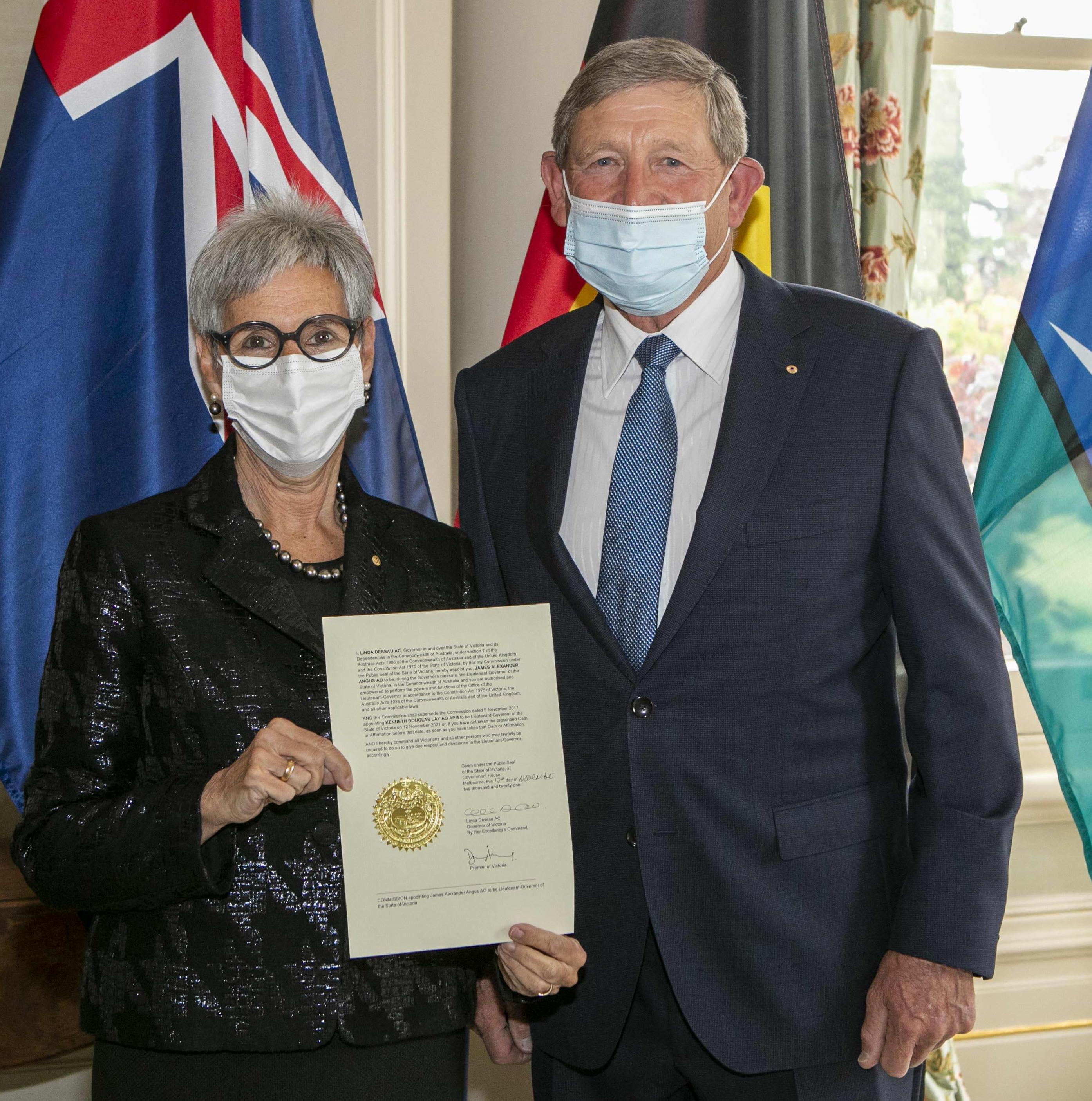Cardiovascular researcher appointed lieutenant governor
 Professor James Angus, a cardiovascular researcher at Melbourne University has been sworn in as the new lieutenant-governor of Victoria.
Professor James Angus, a cardiovascular researcher at Melbourne University has been sworn in as the new lieutenant-governor of Victoria.
Professor Angus worked in cardiovascular disease research at the Baker Medical Research Institute for 15 years, served as chair of pharmacology at the University of Melbourne, and was dean of the Faculty of Medicine, Dentistry and Health Sciences for 10 years.
A member of the Cardiac Society of Australia and New Zealand and the High Blood Pressure Research Council of Australia, Professor Angus was elected to the Australian Academy of Science in 1996 in recognition of his pioneering work on endothelium-dependent relaxing factor on arterial reactivity. He has provided new knowledge about altered arterial responsiveness in hypertension, heart failure and coronary disease, the Academy said.
In his new role he will deputise for the Governor of Victoria, the Hon. Linda Dessau AC.
Oral factor XIa inhibitor milvexian in Phase 2 trial
Factor XI inhibition with oral milvexian has been shown to reduce the risk of postoperative VTE without increasing the risk of bleeding.
An international phase 2 trial across 18 countries including Australia compared milvexian (25, 50, 100, 200 mg twice daily or 25, 50, 200 mg once daily) with endoxaparin (40 mg once daily) in 1,242 patients undergoing knee arthroplasty.
Milvexian significantly reduced the incidence of postoperative VTE in a dose-dependent manner with both twice-daily and once-daily regimens.
“Furthermore, the incidence of venous thromboembolism was significantly lower with daily milvexian doses of 100 mg or more than that with enoxaparin.”
The principal safety outcome of bleeding of any severity occurred in 38 of 923 patients (4%) given milvexian and in 12 of 296 patients (4%) given enoxaparin.
Read more in the NEJM.
Tobacco sales ban is next step for smoke-free Australia
The government must set an ‘end date’ to phase out retail sales of tobacco altogether if it is to meet its goal of reducing smoking to below 5% by 2030, public health advocates say.
Writing in the MJA, Associate Professor Coral Gartner of the University of Queensland says the continuing availability of tobacco from retail outlets normalises smoking as a behaviour for young people and the only realistic action plan to reduce consumption is to reduce the number of retail outlets.
The authors say industry self‐regulation and other voluntary approaches will not reduce tobacco retailing, and there is a need to adopt approaches such as a restricting sales to a limited number of licensed dealers or putting tobacco on prescription.
Setting an end date for tobacco sales will also focus efforts on smoking cessation and force the government to plan for an end to tobacco tax revenue, they write.